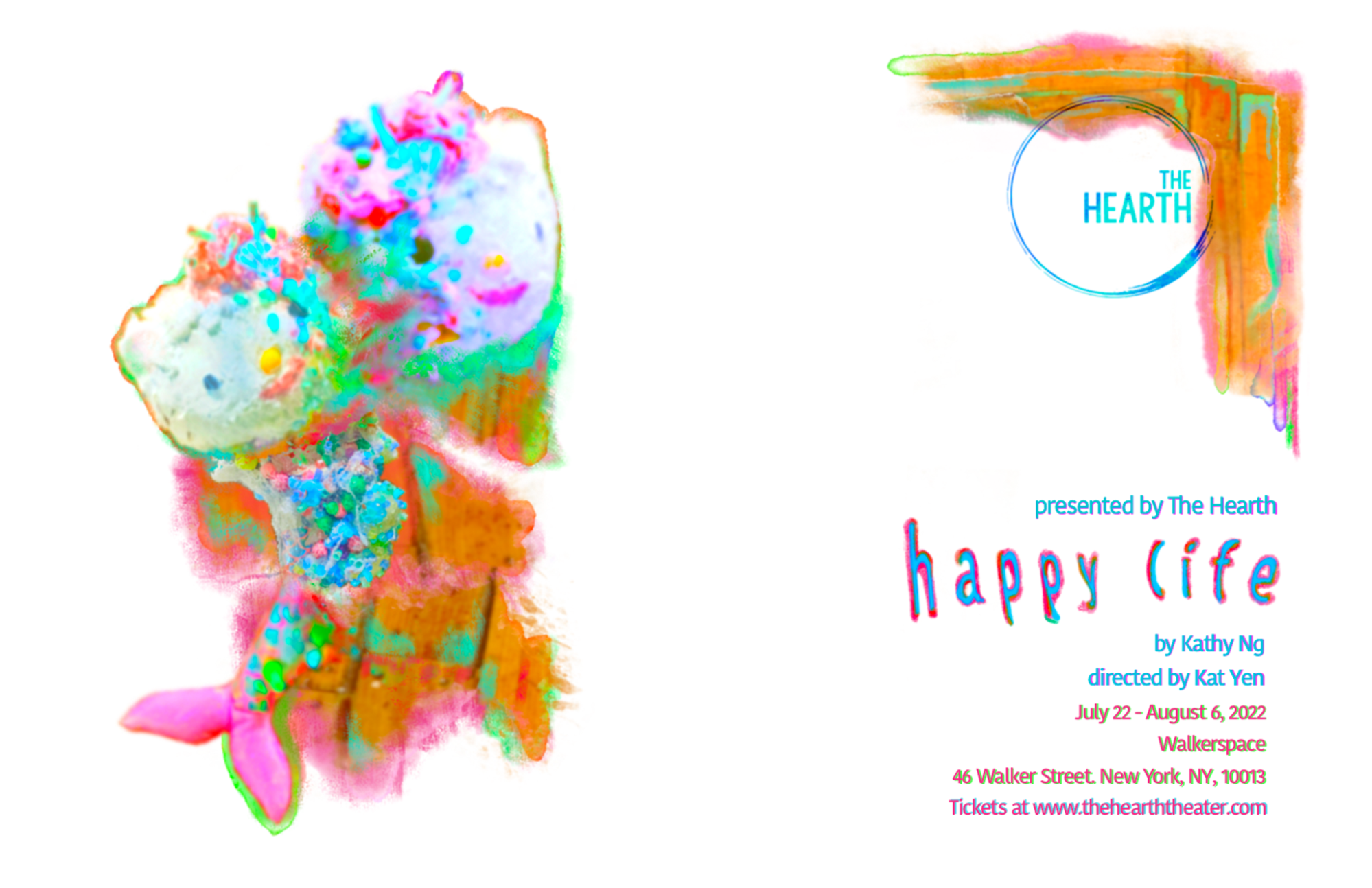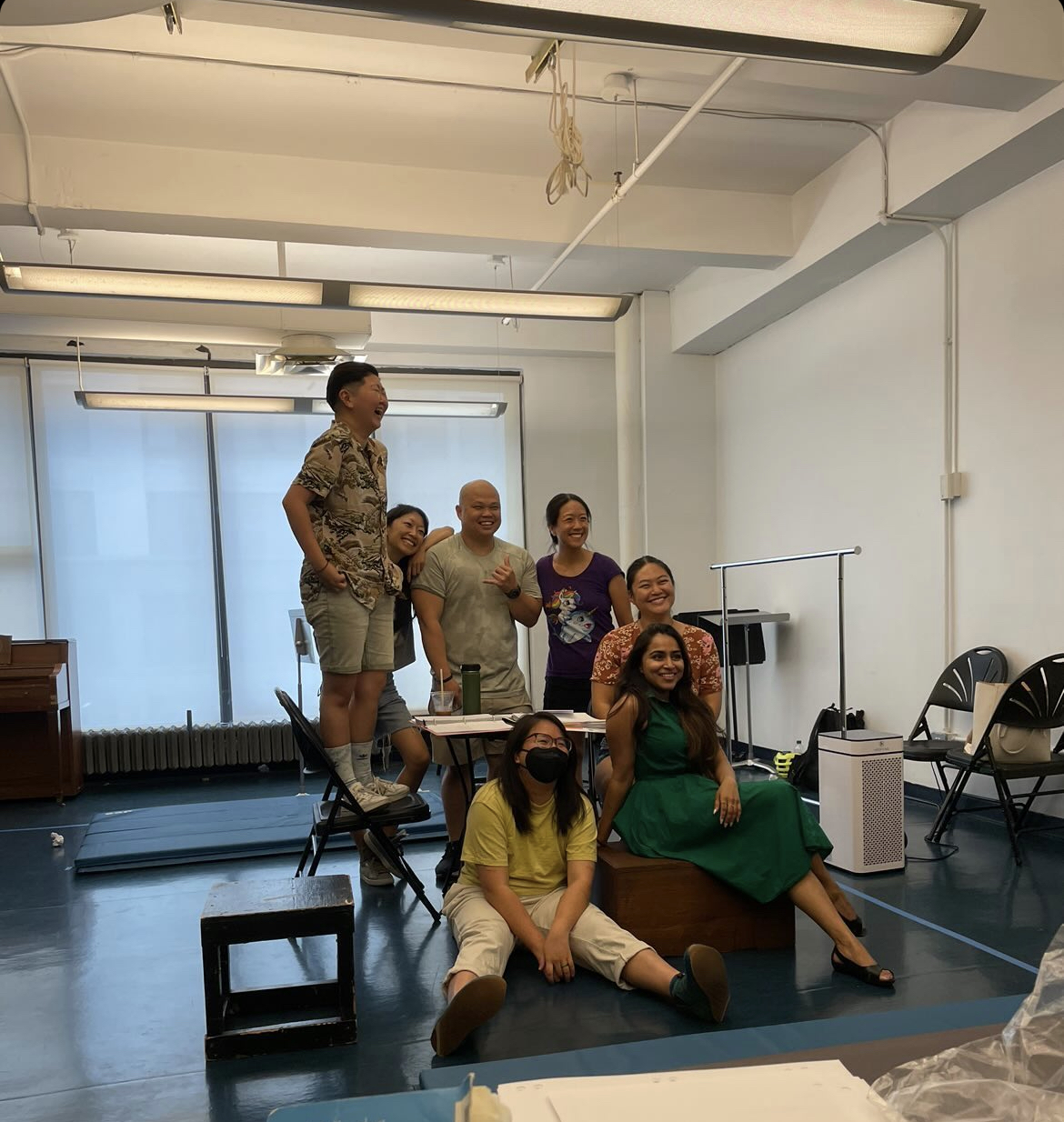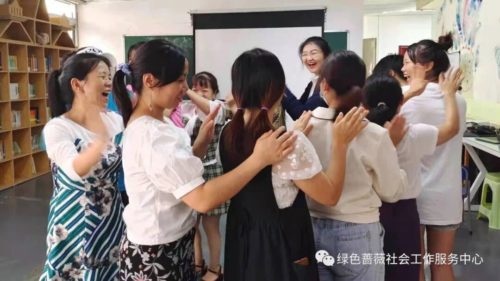Q&A: ‘Happy Life’ — the living and the dead with playwright Kathy Ng
Featuring a cast and team of Asian artists, Happy Life is Hong Kong-born, U.S.-based playwright Kathy Ng's first full production in New York City. Ahead of its world premiere this Friday, we caught up with Ng to talk about her play and career.

Kathy Ng blends the living and the dead in her new play.
Opening Friday at the Walkerspace Theater in New York City, Happy Life is produced by the Hearth, a production company dedicated to telling the stories of women and supporting the work of female-identifying artists. Directed by Kat Yen, the play was loosely inspired by the Hello Kitty murder, a 1999 case in which a nightclub hostess was abducted and tortured in an apartment in Tsim Sha Tsui, Hong Kong.
Happy life employs magical realism to create an immersive world where audiences are made to contemplate violence against women, what happens after murder, and the bureaucracy of second chances.
Prior to the production’s official opening on July 22, The China Project spoke with playwright Ng about her writing process, inspiration, and what it’s like to be an Asian-American woman in the theater. Below is a lightly edited transcript of our conversation.
Tell us a bit about yourself?
My name is Kathy Ng and I was born in Hong Kong. I lived there until I was 18 and then I went to Brown University for my undergrad. That’s when I started doing theater. I started with acting and then moved into writing. I moved to New York City a few years ago for grad school and that’s where I’ve been for a while now.
Can you walk us through how everything started with the play, pre-production?
In spring 2020, at the start of the pandemic, the Hearth put out a call for virtual commissions. They offered up a list of things including songs, monologues, and a María Irene Fornés documentary and told applicants that if any of these sparks a play, submit 10 pages and a pitch and they’ll see if they want to commission it. So I sent the idea for this play to the Hearth and they gave me a little bit of money. I then wrote the first draft, which took me about three or four months. But since then I’ve been working on it for the past two years. In December 2021, we had a workshop for it and then the play has been changing up until like this week. So I guess I’m still working on it. But right now, just tiny changes.
What was the biggest challenge for you when writing this play? How is it different from your other work?
Because I tend to combine multiple, different elements into one story, sometimes it’s challenging for me to figure out what the play means and what the plot is. happy life is sort of an ensemble piece where characters are on their own different tracks and in the end I try to blend them all together.
This play is the culmination of a lot of the themes I’ve been working with since I started writing. In a way I feel it’s like an evolution instead of something completely different from what I worked on previously. It deals with some body horror stuff, supernatural elements, and a little bit of magic.
The pandemic also influenced my writing, for sure. I am definitely interested in exploring isolation in the play and that was such a prevalent thing everyone was experiencing during the pandemic. It’s a topic that resonates with people who were trapped at home.
The story is set in Hong Kong. Is there a particular reason for that?
I’ve always been interested in telling stories about Hong Kong and that’s just like an impulse for me. The real estate market there is a nightmare and people can’t afford to live anywhere. That’s kind of what the play is about — the way that there’s no room or space anywhere for people to live. Plus, one of the characters in the play is inspired by a very famous murder in Hong Kong, called the Hello Kitty murder. One of the characters is based off of the sex worker that was murdered in 1999.
How did you come across the story of the Hello Kitty murder? What about it really sparked your interest?
It was actually a story I heard growing up and was one of the prompts that the Hearth gave us. It touches on a few themes including isolation, women living alone, and a domestic environment. I’ve always been interested in investigating the horror of domestic living and some other murder stories of women being tortured and kidnapped for a long period of time. The person is lost in those stories and I’m interested in doing something where the person has a voice.
There are multiple characters in happy life but I guess you could say the woman based on the Hello Kitty murder victim is the main character in the sense that she embodies the place and the play.

What do you hope audiences take away from this production?
I don’t necessarily write plays from the perspective of wanting to change anyone’s point of views and give them a message. I always think of plays as an invitation to a space where I want people to have an experience. I’m not interested in controlling what they think. I hope people will connect with the characters and I hope it’s fun and interesting for audiences to see a bunch of Asian characters take agency of their bodies, voices, and sexuality on stage in a way that I don’t think takes place very often. I hope that’s something people enjoy about the play.
Having lived in the U.S. for quite some time, do you still keep up with the news from Hong Kong?
For sure. I try to keep up to date with what’s happening in Hong Kong, even though sometimes I feel very far away. But that’s still where my home is. I’ve been keeping close to at least the general big things that are happening there.
Sometimes I call it a place of sadness because I miss Hong Kong and I have complicated feelings about it growing up there. It’s also sad because of all things that are happening their politically at the moment. That makes me sad, too.
What it’s like to be a woman in the play writing industry, especially as a woman of color. Do you wish there was more theater companies like the Hearth, whose primary goal is to tell the stories of women and support female writers?
As a female writer trying to forge a career in this industry, I feel it’s hard to make people take you seriously sometimes. I know a lot of Asian Americans in this field feel kind of invisible, which is something I have felt a lot throughout the years. The feeling of not being seen and not being seen as a writer. It’s been hard to fight through that and I’m very grateful for the Hearth to give me this opportunity, especially given that I’m not a very successful writer. It’s not that common for a company to throw all the resources at you and to give you a full production. In general, I just hope the theater industry will be willing to take more risks and hire more women of color writers.
For tickets and a full performance schedule for “Happy Life,” click here.


